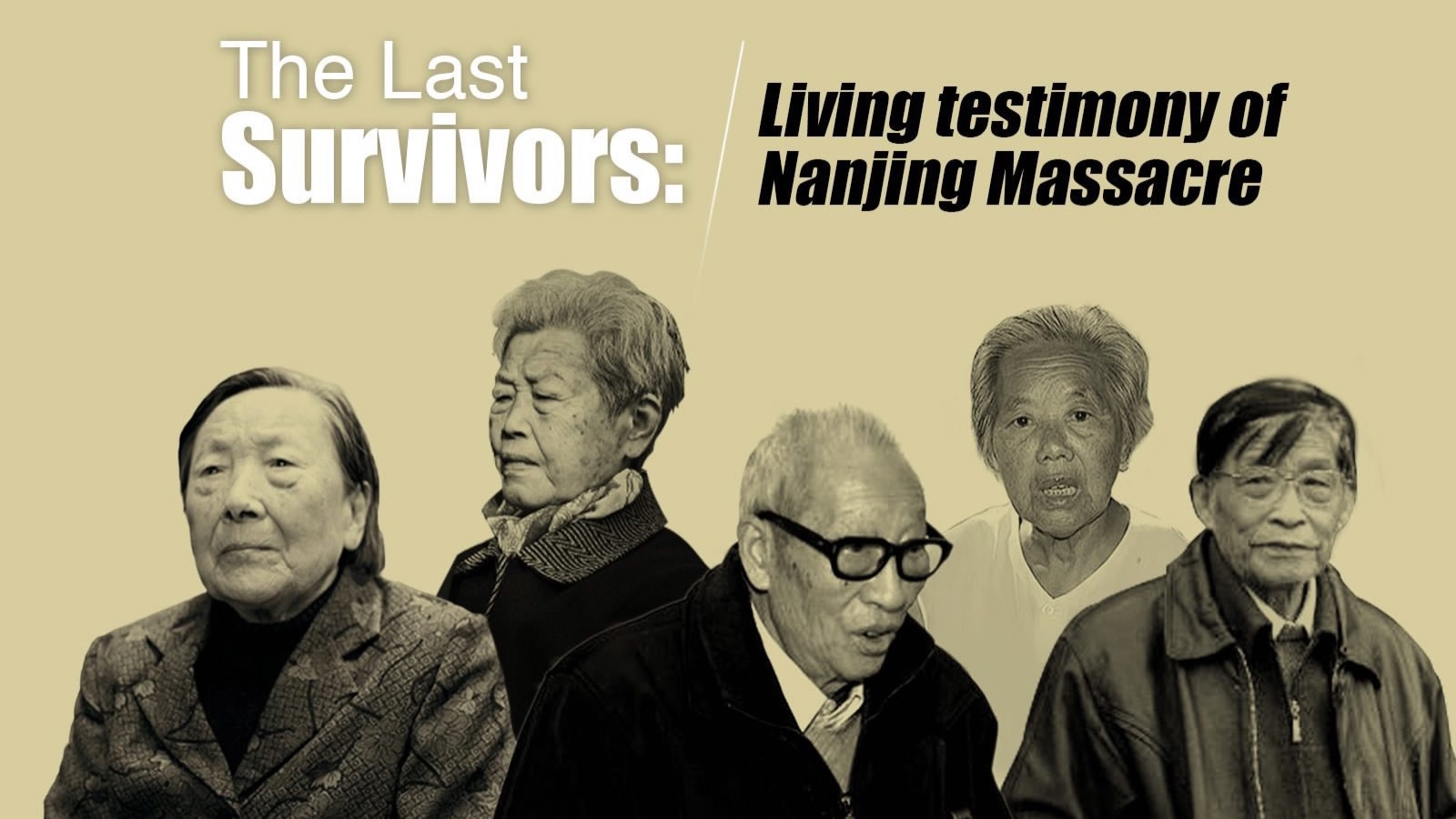Three days before National Memorial Day for Nanjing Massacre Victims, Guan Guangjing, the oldest living witness and one of the last survivors of the atrocity, passed away at the age of 100.
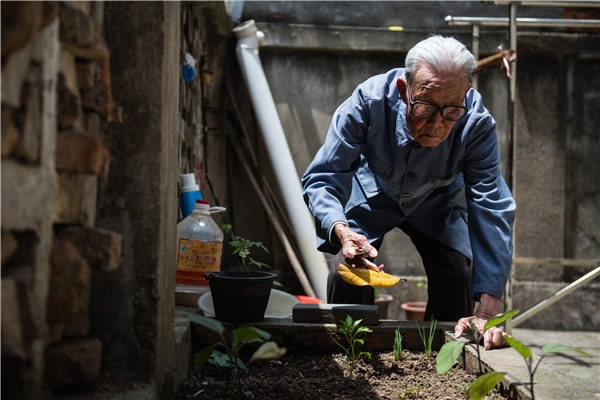
Guan Guangjing was the oldest Nanjing Massacre survivor until his death on December 10. He was 100 years old. /Xinhua Photo
Guan Guangjing was the oldest Nanjing Massacre survivor until his death on December 10. He was 100 years old. /Xinhua Photo
On December 13, 1937, Japanese invading forces captured East China’s city of Nanjing, which was then China’s capital, and carried out six weeks of mass slaughter, looting and rape. Over 300,000 unarmed soldiers and civilians were murdered and more than 20,000 women were raped.
After Guan’s passing, only 97 registered survivors are still alive. They are the living testimony of the undeniable war crime.
Chang Zhiqiang: This is undeniable
Chang Zhiqiang was nine years old when all six of his closest family members were killed in front of his eyes during the massacre.
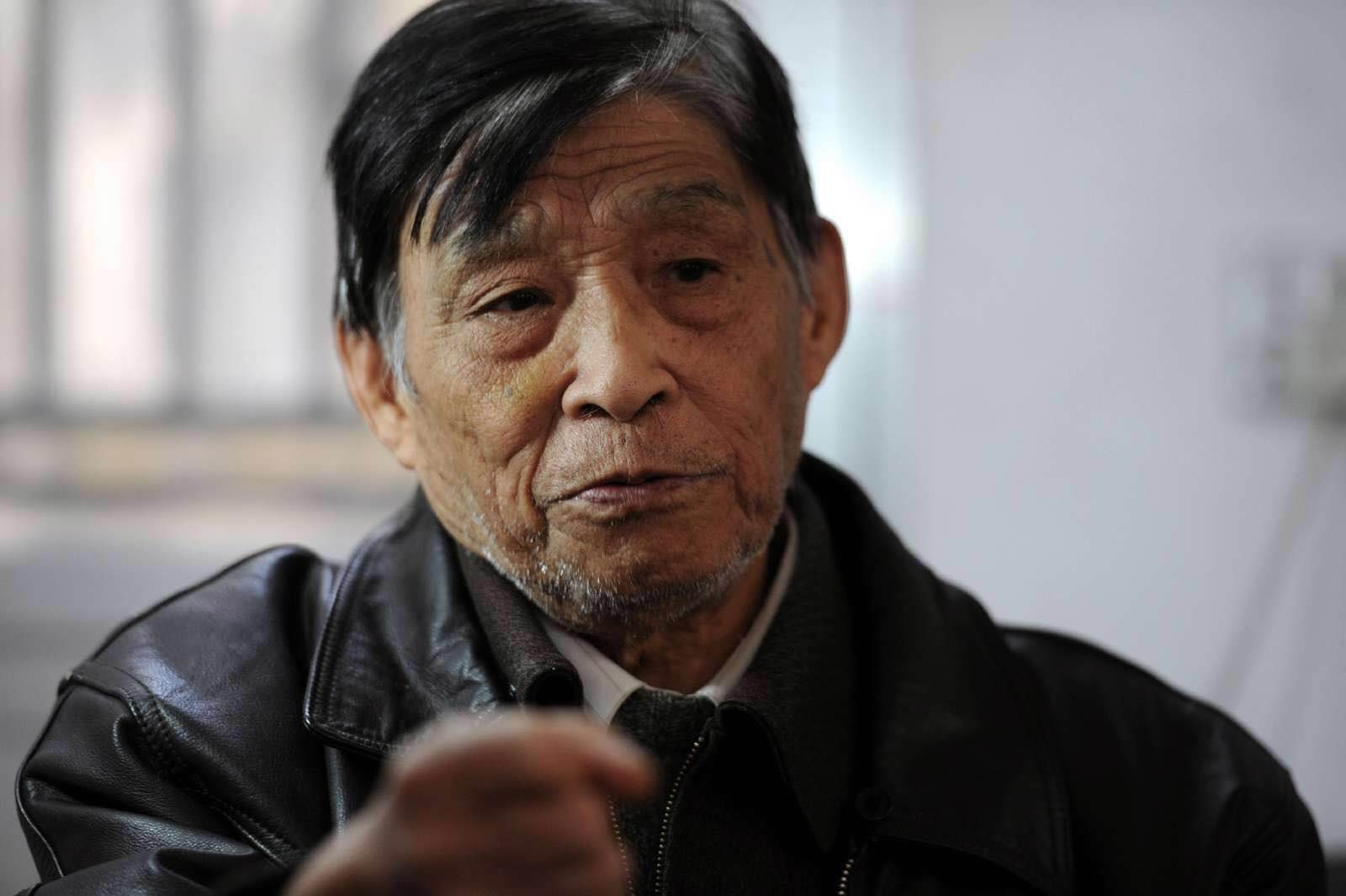
Chang Zhiqiang, one of the 97 registered Nanjing Massacre survivors still alive. /Xinhua Photo
Chang Zhiqiang, one of the 97 registered Nanjing Massacre survivors still alive. /Xinhua Photo
The 89-year-old recalled the last scene he saw before losing consciousness, when his two-year-old brother, fatally injured, was fed for the last time by his dying mother. "I saw my younger brother crying, so I took him to our mother. I saw her remove her shirt to breastfeed him. That's when I saw that she’d been stabbed, and was bleeding. I couldn't stop crying."
For many years, Chang didn’t share this traumatic childhood memory, not even with his family.
That changed in 1982, when he learned that Japan’s education ministry had revised history textbooks for secondary schools. The war crimes committed during Japan’s aggression in China were whitewashed and the atrocities caused in the Nanjing Massacre downplayed.
The Chinese government responded by compiling evidence of the catastrophe, and Chang contributed by providing oral accounts.
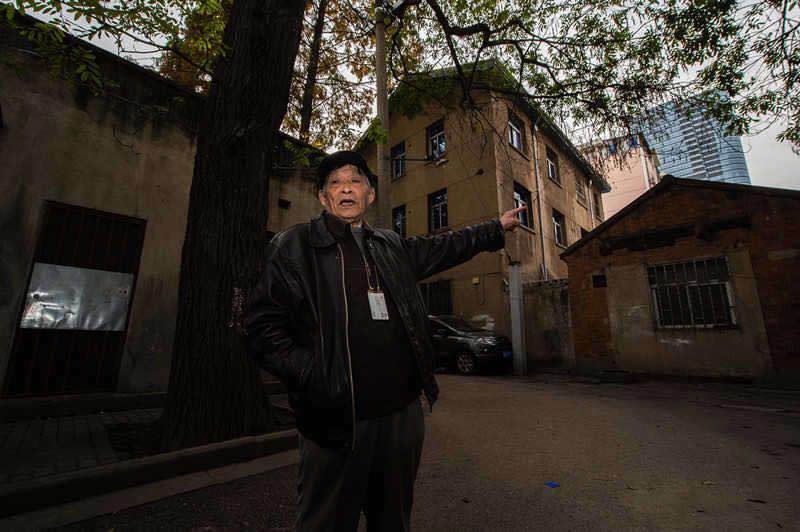
Chang Zhiqiang recalling his memories of Nanjing Massacre. /Xinhua Photo
Chang Zhiqiang recalling his memories of Nanjing Massacre. /Xinhua Photo
“I must tell people what I’ve seen and experienced of the atrocities caused by the Japanese troops,” Chang said. “This part of history is undeniable.”
In 1985, the Memorial Hall of the Victims in Nanjing Massacre by Japanese Invaders was opened to the public. One of the sculptures at the memorial in Nanjing depicted Chang’s last moment with his mother and his brother.
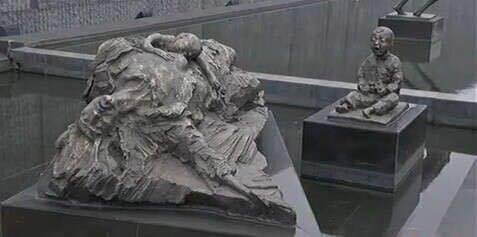
A sculpture depicting Chang Zhiqiang's last moments with his mother and brother. /Xinhua Photo
A sculpture depicting Chang Zhiqiang's last moments with his mother and brother. /Xinhua Photo
The elderly man still cannot bear to walk close to the sculpture.
Wu Lisong, a history lecturer at Nanjing University, told China Daily that the public used to believe survivors’ pain would heal, but have come to realize that the hurt lasts a lifetime.
"Some of them are stricken with fright when people wearing Japanese military uniforms appear on the TV screen, and some become irritable whenever people mention those years to them," Wu explained.
Xia Shuqin: Speaking out for the truth
Xia Shuqin, aged eight when a group of Japanese soldiers broke into her house on December 13, 1937, witnessed the troops shoot her father and rape and kill her mother and two sisters. Xia was stabbed three times in her shoulder, but managed to survive.
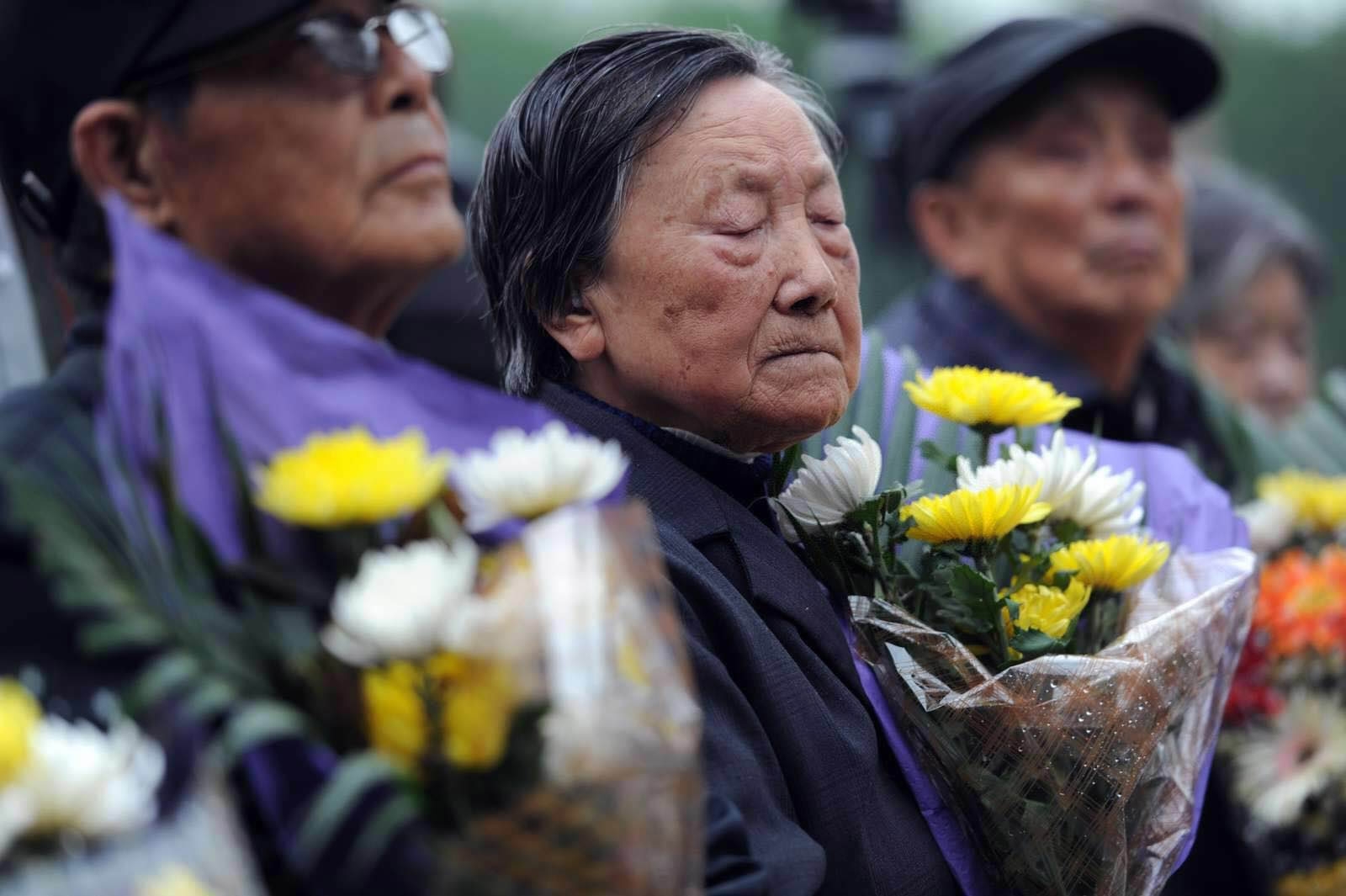
Xia Shuqin, the first Nanjing Massacre survivor who traveled to Japan to speak out for the truth. /Xinhua Photo
Xia Shuqin, the first Nanjing Massacre survivor who traveled to Japan to speak out for the truth. /Xinhua Photo
In 1994, Xia became the first Nanjing Massacre survivor to travel to Japan and share her story.
“A Japanese woman suddenly knelt down and apologized to me,” Xia said. “I realized that so many Japanese citizens didn’t know about this part of history.”
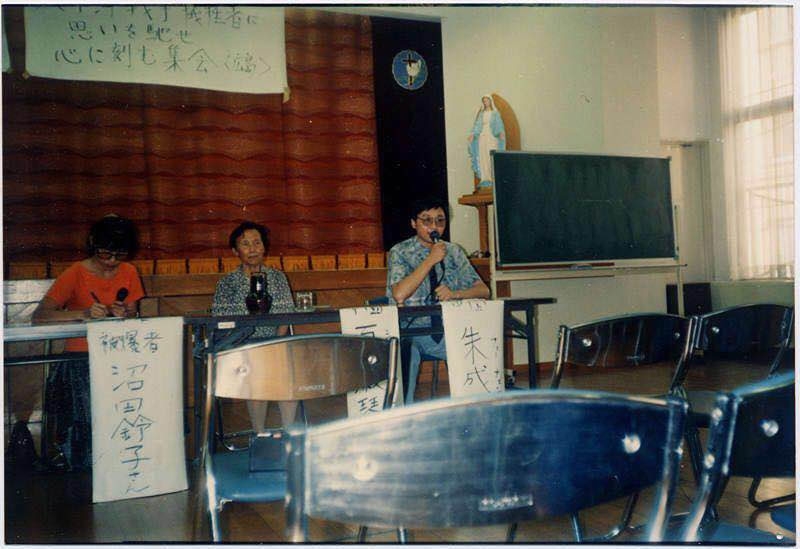
Xia was invited to Japan to tell her witness storie in 1994. /Xinhua Photo
Xia was invited to Japan to tell her witness storie in 1994. /Xinhua Photo
After this trip, Xia devoted herself to speaking up for the truth. However, she didn’t expect her testimony to be attacked. Two Japanese scholars published books questioning the Nanjing Massacre and labeling Xia a “fake witness” who fabricated her account.
“I was outraged. I saw my family falling to the ground one after another in front of my eyes. How could they blindly lie like that?” Xia questioned.
Xia sued the publisher and the authors in China and Japan respectively – and won the case.
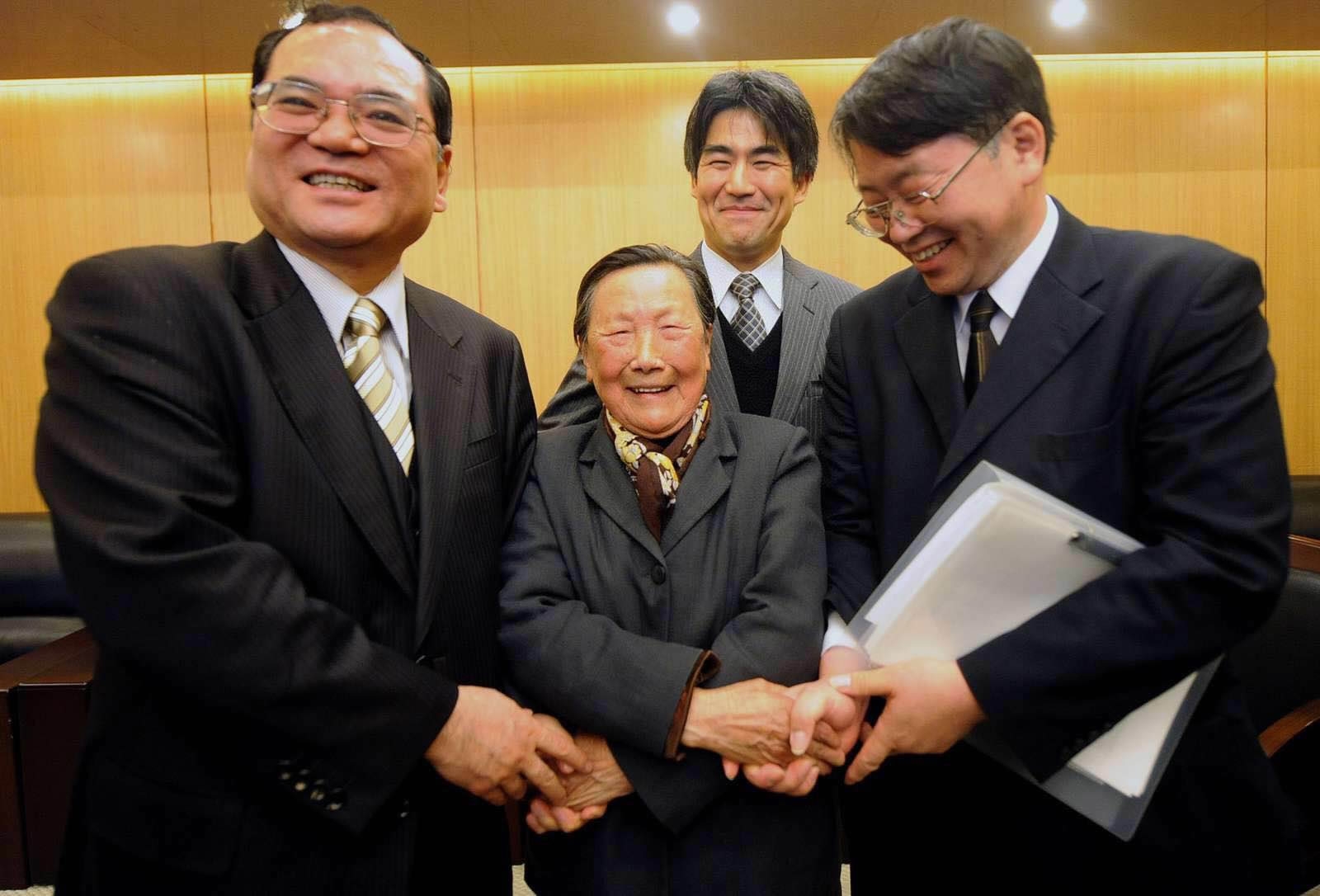
The moment of winning a case at a Tokyo court in 2007. /Xinhua Photo
The moment of winning a case at a Tokyo court in 2007. /Xinhua Photo
On December 13, 2014, China held a state ceremony to mark the country’s first National Memorial Day for Nanjing Massacre Victims. Xia walked with President Xi Jinping as the representative of the attending survivors.
97 living survivors
In 1984, 1,756 survivors were registered with the Nanjing government. By 1997, 1,200 were still living. Today, there are only 97 alive to pass on their testimony.
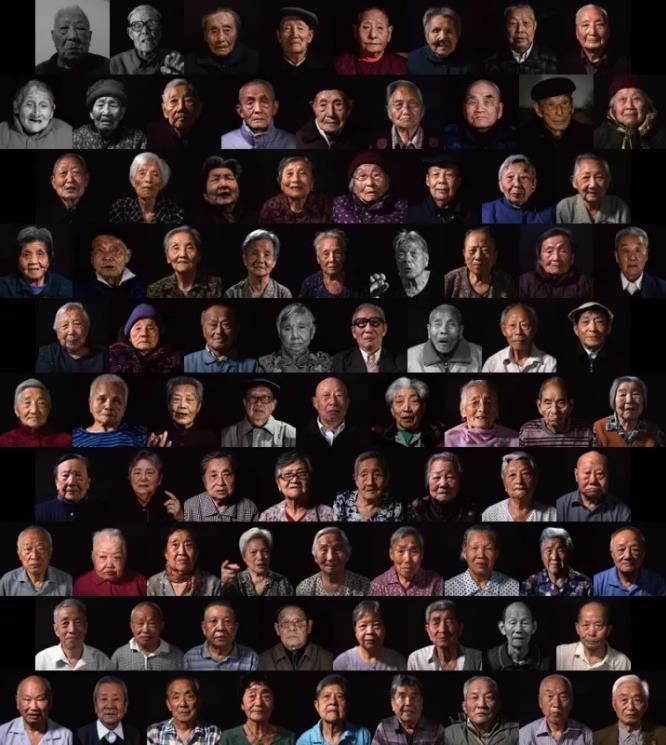
A photo collage of the registered survivors of Nanjing Massacre. /Xinhua Photo
A photo collage of the registered survivors of Nanjing Massacre. /Xinhua Photo
“Perhaps only war witnesses like us could ever understand the horror of war and the preciousness of peace,” Ai Yiying, an 89-year-old survivor of the Nanjing Massacre, told the Beijing News.
Ai believes that the prerequisite for understanding the importance of peace is to face the horrors of war crimes. “Thousands of people were brutally murdered. Survivors like us are still alive,” said Ai. “How can anyone willingly deny the history?”
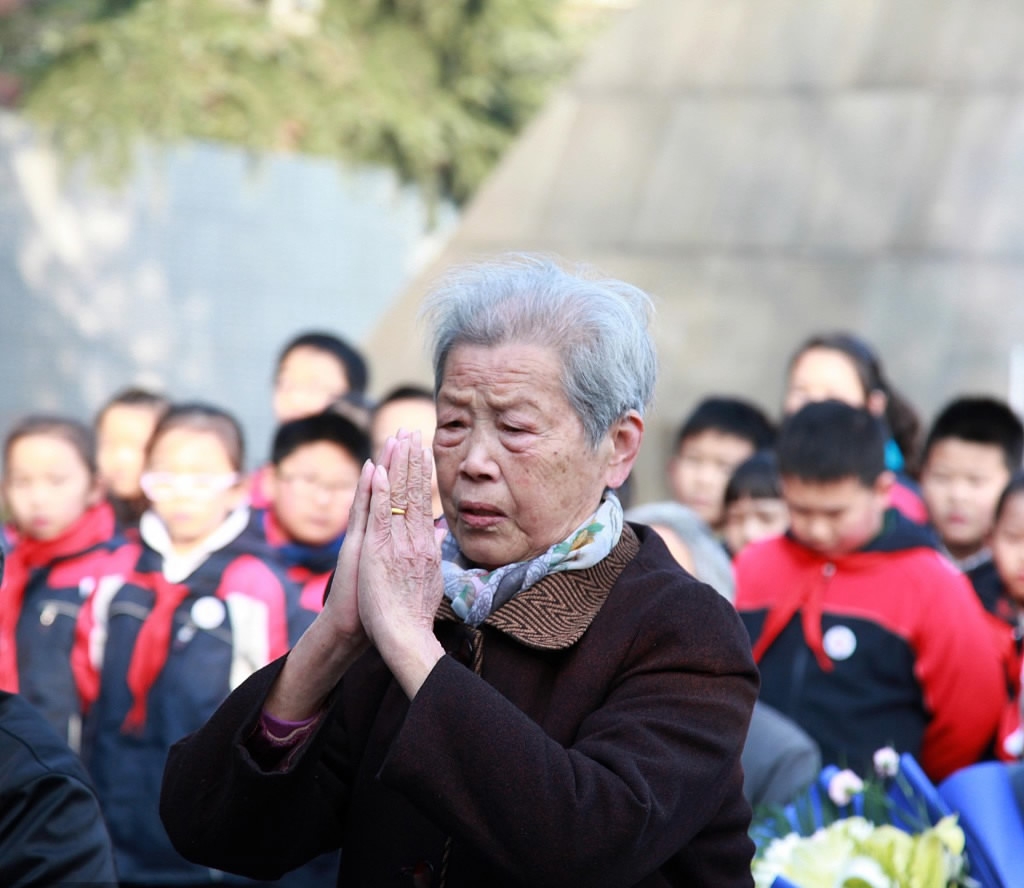
Ai Yiying attending a memorial ceremony. /VCG Photo
Ai Yiying attending a memorial ceremony. /VCG Photo
Historical records including diaries, photos and testimonies have been well preserved to expose the atrocities that occurred in the massacre, yet the Japanese government has attempted to deny, whitewash or rewrite history.
“Neither an apology nor compensation can reverse the traumas to the victims and survivors, but we still must make clear the history, which may be a starting point of reconciliation,” Wu said.
On Wednesday, the fourth National Memorial Day for Nanjing Massacre Victims was held in Nanjing. Communist Party of China and state leaders were in attendance to remember the pain and commemorate the legacies of those who suffered and sacrificed.

